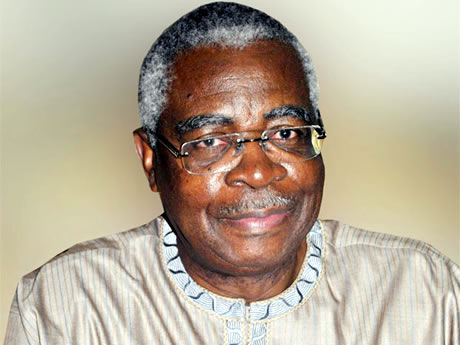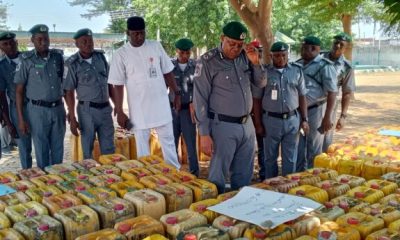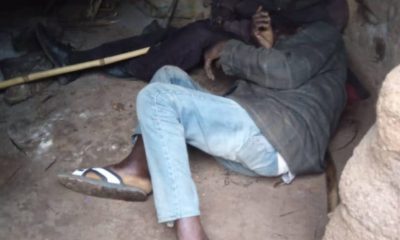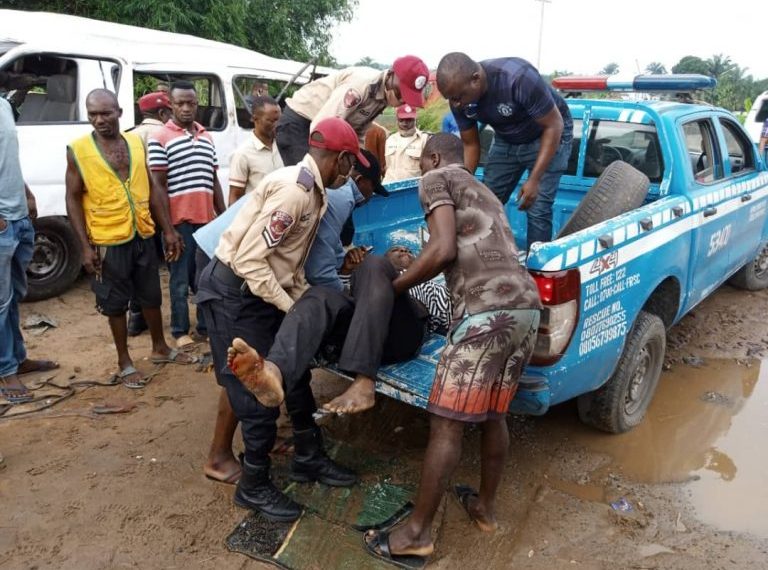Health
TY Danjuma Foundation Inaugurates Children Hospital in Taraba

Retired Lt.-Gen. Theophilus Danjuma Tuesday inaugurated Kuru Danjuma Hospital for Children in his home town Takum, Taraba, which was constructed by the TY Danjuma Foundation.
Danjuma, Chairman of the Foundation noted at the event that the state-of- the- art hospital was named after his late father Kuru, who according to him exemplified selfless service to humanity.
“The Kuru Danjuma Hospital for children is a state -of the -art specialised facility, providing top-notched services aimed at enhancing the health and wellbeing of children.
“The primary aim of the hospital is to lead, define and provide affordable world -class pediatric healthcare services, centered on health promotion, disease prevention and quality treatment of children,” he said.
According to him, though the inauguration occurred on Monday, the doors of the hospital had been opened since March 1.
“I am pleased to inform you that the hospital has already saved a lot of lives which would easily have perished because of lack of access to quality healthcare,” he noted.
He commended Gov. Darius Ishaku of Taraba for supporting the project by constructing access road to the hospital and accommodation for doctors among others.
Minister of Health, Dr Osagie Ehanire, described the private sector initiative of Danjuma on health intervention as unique.
Ehanire noted that the action was in line with the mission of President Muhammadu Buhari for quality healthcare delivery for all Nigerians.
Ishaku lauded Danjuma for greatly intervening in health and educational institutions across the country.
The governor noted that Danjuma built a maternity hospital in Takum in 2017 which had since been delivering quality services to the people and now a children hospital.
Ishaku, who explained that his administration had built many primary health centres and rehabilitated tertiary hospitals across the state, described Danjuma’s intervention as awesome. (NAN)
NDLEA Seizes Over 3m Kilograms of Drugs in 11 Months
The National Drug Law Enforcement Agency (NDLEA) said it had seized over three million kilograms of illicit drugs between January and November nationwide.
The Chiarman, NDLEA, (rtd.) Brig.-Gen. Buba Marwa, said this during the public destruction of illicit drugs yesterday in Abuja.
Marwa, was represented by the Secretary of the agency, Bar. Shadrach Haruna.
“Between January and November, we have mopped up over three million kilograms of illicit drugs and psychoactive substances in the country.
“We have arrested 10,355 traffickers, with at least 1,000 in jail while others are going through trials in court. Over 5,579 drug users have been counselled and rehabilitated.
“Still, we are not resting on our oars. This time around, we are going to clean the Augean Stable. We are getting more sophisticated equipment that will enable us to achieve our operational mandates.
“Our workforce has been motivated to perform with promotions and performance reward schemes, while we have also bolstered our strength with the employment of 5,000 officers and men this year,” he said.
Marwa noted that the statistics from the National Drug Use Survey (2018) was cause for concern, saying that just two of the facts were enough to cause a sober reflection.
He noted that 14.3 million Nigerians, aged 15-64 years, were abusing drugs, adding that it was the size of the population of some countries.
The NDLEA boss said the second fact was that 10.6 million of the compatriots abused cannabis, which made Nigeria the country with the highest number of people addicted to the psychotropic plant. (NAN)
Health
Millions of Children Experience Daily Domestic Violence in Schools, Homes Globally – WHO
Hundreds of millions of children and adolescents around the world face daily violence in their homes, schools, and elsewhere which could have lifelong consequences.The World Health Organisation (WHO) said this on Thursday.The violence includes being hit by family members, being bullied at school, as well as physical, emotional, and sexual violence, WHO said.
In most cases, violence occurs behind closed doors. More than half of those aged two to 17 or more than a billion minors in total experience violence each year according to the WHO. In three out of five children and adolescents, it is physical violence at home, with one in five girls and one in seven boys experiencing sexual violence.Between a quarter and half of minors are affected by bullying according to the information provided.Only half of the children reportedly talk about their experiences of violence and less than 10 per cent receive help.Lifelong consequences could include depression and anxiety disorders, or tobacco and drug use.As a result, many children do not reach their learning potential in school.Against the backdrop of being highly preventable, violence remains a horrific day-to-day reality for millions of children around the world leaving scars that span generations,” said Tedros Adhanom Ghebreyesus, WHO director general.The UN’s first conference on violence against children opened in Bogota, Columbia on Thursday.At the two-day conference, more than 100 countries pledged to find ways to better support overwhelmed parents and introduce school programmes against bullying and for healthy social behaviour.They also pledged to raise the minimum age for marriage.Some countries wish to generally ban children from being hit at school or home. (dpa/NAN)Health
WHO Identifies 17 Pathogens as Top Priorities for new Vaccine Development

The World Health Organisation (WHO) has listed 17 bacteria, viruses and parasites that regularly cause disease as top priorities for new vaccine development.WHO, in a study published on Tuesday, reconfirmed long-standing priorities for vaccine research and development (R&D), including for HIV, malaria, and tuberculosis – three diseases that collectively take nearly 2.
5 million lives yearly. The study is the first global effort to systematically prioritise endemic pathogens based on their regional and global health impact. Attention is also given to pathogens such as Group A streptococcus, which causes severe infections and contributes to 280,000 deaths from rheumatic heart disease, mainly in lower-income countries.Another new priority is Klebsiella pneumoniae — a bacteria that was associated with 790,000 deaths in 2019 and is responsible for 40 per cent of neonatal deaths due to blood infection (sepsis) in low-income countries.The new study supports the goal of ensuring that everyone, everywhere, can benefit from vaccines that protect against serious diseases.It aims to shift the focus in vaccine development away from commercial returns towards regional and global health needs, WHO’s Dr Mateusz Hasso-Agopsowicz, who works in vaccine research, said in a statement.He explained that in the past, vaccine R&D typically was influenced by profitability.“As a result, diseases that severely affect low-income regions received little attention.“We hope this represents a critical shift where we want to change the focus from commercial perspective profitability of new vaccines towards the actual health burden so that the new vaccine research and development is driven by health burden and not just commercial opportunities,” he said.To carry out the study, WHO asked international and regional experts what they think is important when prioritising pathogens for vaccines R&D.Criteria included deaths, disease and socioeconomic impact, or antimicrobial resistance.“We had asked experts that have expertise in pathogen epidemiology, clinicians, paediatricians, vaccine experts from all of the WHO regions, to ensure that the list and the results that we produce really reflect the needs of diverse populations worldwide,” Hasso-Agopsowicz said.Analysis of those preferences, combined with regional data for each pathogen, resulted in the top 10 priority pathogens for each of WHO’s six regions globally.The regional lists were then consolidated to form the global list, resulting in the 17 priority endemic pathogens for which new vaccines are urgently needed.To advance vaccine R&D, WHO has categorised each pathogen based on the stage of vaccine development and the technical challenges involved in creating effective vaccines.Hasso-Agopsowicz said the study is expected to guide future vaccine R&D investments, including funders, researchers and vaccine developers, and also policymakers as they “can decide whether to introduce these vaccines into immunisation programmes.” (NAN)Health
UCH JOHESU Suspends Strike

The Joint Health Sector Unions (JOHESU), University College Hospital (UCH), Ibadan,has suspended the strike it embarked on Oct. 25.The workers resumed work on Friday morning.The seven-day nationwide warning industrial action embarked upon by the unions was to press home their demands ofadjustment of Consolidated Health Salary Structure as was done with the Consolidated Medical Salary Structure sinceJan.
2, 2014 and implementation of consultant cadre for pharmacists in federal health institutions. Others are upward review in the retirement age from 60 to 65 years for health workers and 70 years for consultants, andpayment of outstanding salaries of JOHESU members in professional regulatory councils.The UCH JOHESU Chairman, Mr Oladayo Olabampe, said that the strike was suspended as directed by the national body.He explained that “the suspension followed an MoU signed between JOHESU national leadership and Federal Government.“The Federal Government asked for a maximum of six weeks counting from Oct. 31, to meet our demands.“Based on the MoU signed, the JOHESU National Executive Council met and resolved that the strike be suspended on Fridaynationwide.”According to him, JOHESU UCH is obeying the order, and workers have resumed work.Olabampe said that if the demands were not met after the six weeks, they would embark on an indefinite strike. (NAN)
























